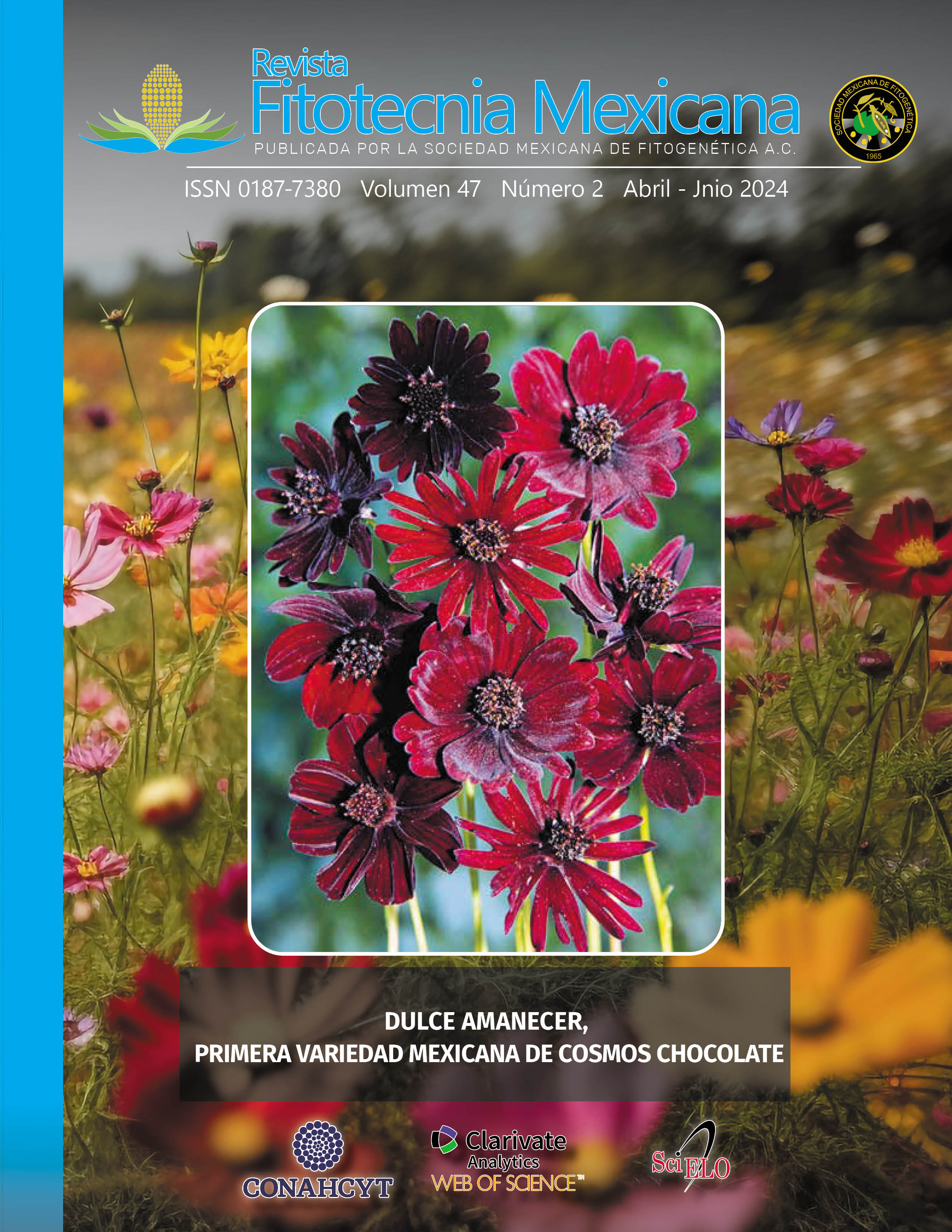USE OF PHOSPHITE FOR THE BIOSTIMULATION OF SUGARCANE (Saccharum spp. Hybrid) in vitro
Main Article Content
Abstract
Phosphite (Phi) is a biostimulant that is receiving increasing interest in horticulture because its application in crops has improved yield, quality and tolerance to various types of stress. Four increasing doses of phosphite (0, 0.1, 0.3 and 0.5 mM) were evaluated for 30 days under in vitro conditions in sugarcane (Saccharum spp.) during the multiplication stage. Varieties CP 72-2086 and Mex 69-290 were used in which growth (shoots, leaves and biomass) and biochemical (chlorophylls, carbohydrates, amino acids and proteins) traits were measured. For data analysis, analysis of variance was performed and Tukey’s test (P ≤ 0.05) was applied for the separation of means. The dose of 0.3 mM Phi in the variety CP 72-2086 increased the length, width and number of leaves; it also increased the number of shoots and leaf concentration of chlorophyll a and b. Treatment with 0.3 mM Phi in variety Mex 69-290 increased shoot size and leaf length. Therefore, Phi plays a crucial role as an inorganic biostimulant in in vitro-grown sugarcane varieties by improving growth and biochemical variables.

